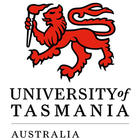Master of Science (Computer Engineering)
Master of Science (Computer Engineering)
The Masters of Research qualifies individuals who apply an advanced body of knowledge in a range of contexts for research and scholarships and as a pathway for further research. Research degree candidates are driven by naturally inquiring minds, and have a passion to solve problems and advance humanity. A research…
Categories
COURSE DESCRIPTION
The Masters of Research qualifies individuals who apply an advanced body of knowledge in a range of contexts for research and scholarships and as a pathway for further research.
Research degree candidates are driven by naturally inquiring minds, and have a passion to solve problems and advance humanity. A research degree allows you to conduct your own, unique research, and produce new knowledge and expertise that is innovative, relevant, and enlightened.
Research degrees equip graduates with the transferable skills and attributes necessary for challenging and diverse roles in industry, government and business, as well as in research and academic organisations.
At the University of Tasmania, a research degree is a true mark of endeavour, providing you with the training and skills necessary for a career in academia and beyond.
Course Objectives
A Masters (Research) qualifies individuals who apply an advanced body of knowledge in a range of contexts for research and scholarship and as a pathway for further learning.
Graduates will:
develop knowledge of the principal doctrines of research in their discipline area and a substantive understanding of key conventions, norms and perspectives in their field.
acquire the capacity to formulate a research question and to reflect critically on the application of appropriate conceptual and methodological practices.
acquire advanced research training and provide evidence for critical analysis, effective communication and/or expression and advanced knowledge of the discipline within a broader framework of knowledge in their field.
demonstrate increasing independence, creativity and initiative in their research practice and are supported in their acquisition of a wide range of advanced and transferable skills.
Career outcomes
Master of Research degrees are internationally recognised research degrees.
The Master of Research is a demonstration of a graduate’s ability to initiate a research project and to formulate viable research questions, to design, conduct and report independent and original research on a defined project and to demonstrate critical evaluation of scholarly literature.
As a result, Master of Research graduates have the opportunity to pursue diverse career paths, including professions in research and academia, as well as a broad spectrum of professions in the public and private sector, including: education, management, journalism, public policy, human resources, marketing and criminology.
REQUIREMENTS
A Bachelor Honours degree of at least second-class lower standard with a Minimum Research Component. A Master’s degree (Coursework) or Graduate Diploma with a Minimum Research Component.
IELTS (International English Language Testing Service – academic version) minimum overall score – 7.0 minimum additional scores No band less than 6.5; TOEFL (Internet-based Test of English as a Foreign Language) minimum overall score – 94 minimum additional scores Minimum 26 for writing and speaking, and 20 for reading and listening; PTE Academic (Pearson Test of English) minimum overall score – 65 minimum additional scores Minimum 65 for writing and speaking with no other score lower than 58.
EDUCATIONAL INSTITUTION
The University of Tasmania was officially founded on 1st January 1890 and is located at Sandy Bay, Tasmania. In addition to the main campus at Sandy Bay, it also operates out of the Newnham Campus and the Cradle Coast Campus. The most popular courses offered are the environmental studies that include wilderness management, marine sciences and indigenous studies in Tasmanian literature. Other unconventional courses include agriculture development, studies on the community and population and ocean study programs. The university also comprises of a Music Conservatorium, Art school and a School of Clinical studies.

